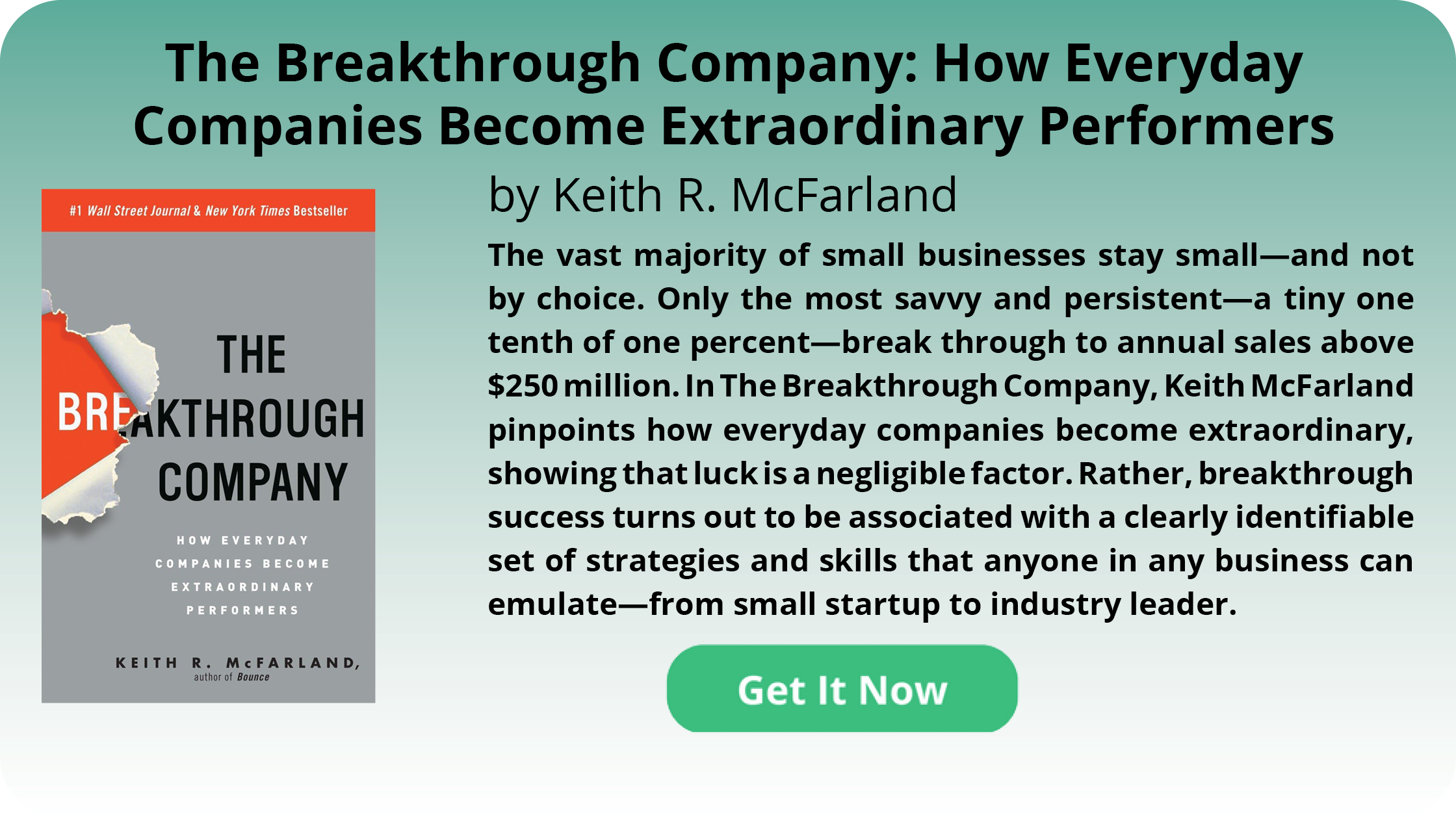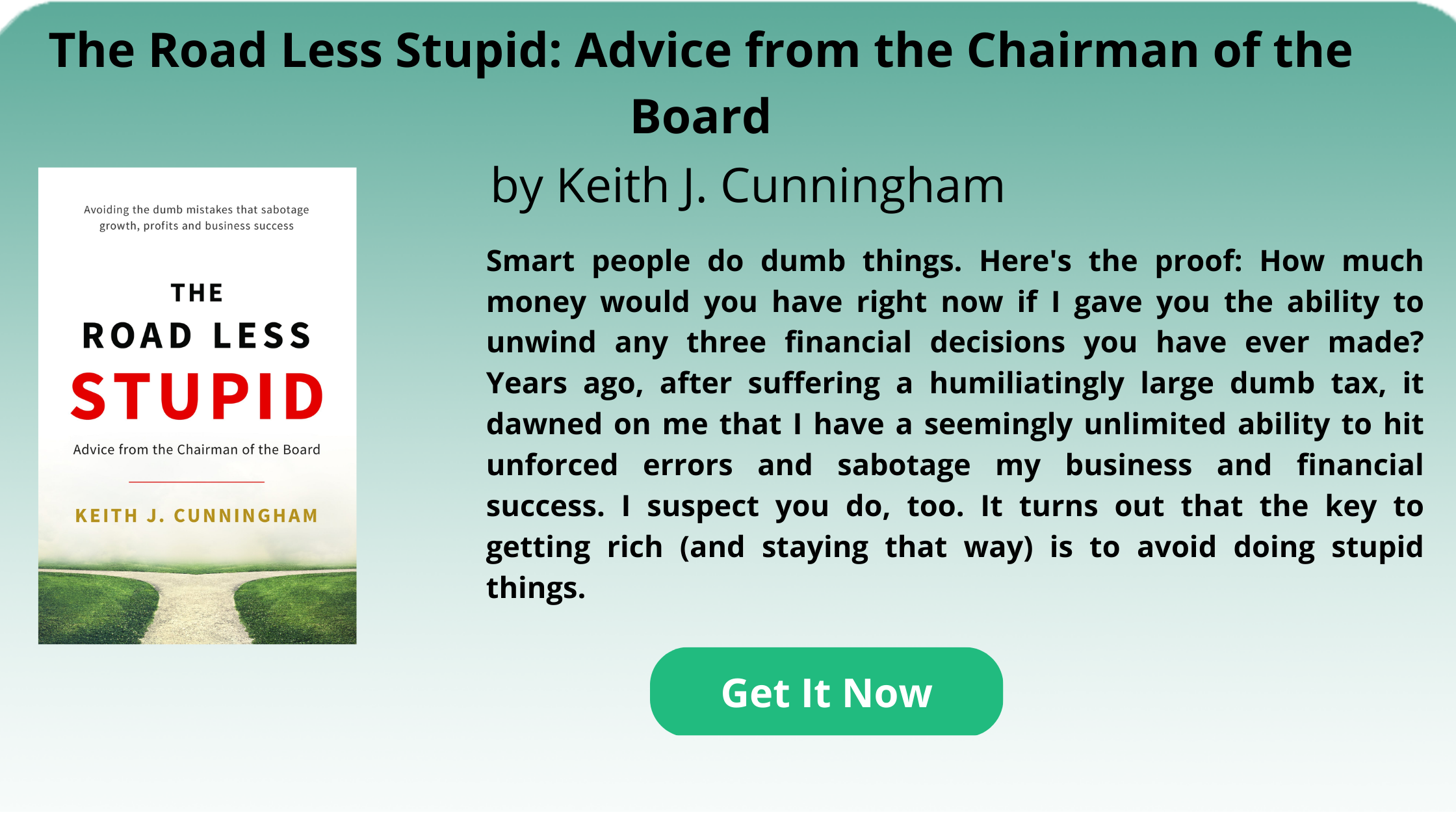Some surveys conducted among business owners, find that approximately 75% of owners who exit their business are unhappy with the decision one year after they do so. There are several reasons for this, and some owners struggle with it more than others, but the main reason for the unhappiness after a business exit is because of their lack of “personal vision.” What will their life entail after the exit? What will be their new higher purpose (beyond playing golf)? What will be their new areas for personal growth? If they thrive on working with a team towards a common cause in the organization, how will they replace it? Do they have one or two other passions outside of their business that they could enjoyably and consistently pursue with significant satisfaction? These are some the questions that need to be asked and addressed, and if done, will increase the likelihood of a happy exit.
Exiting a business is probably the single most important decision an owner will make. Planning for it is critical for maximizing the selling price, ensuring the company’s survival after the owner is gone, and exiting it in the most tax efficient manner – These are all important attributes. But if a business owner does not clearly understand what life will consist of after their exit, and does not embrace it, he or she will likely put off transitioning out. Doing so, could jeopardize the value and survival of the business.
So how does the business owner address the development of their personal vision for life after the exit? A good way to start is working with a skilled exit planning advisor who has the tools available to walk the owner through this planning process. As an exit planning advisor, I have a number of tools and processes that address this area of planning. But generally, a good place to start is to work with the owner and begin to drill down with more specific questions. By the way, it really helps if this is done a number of years before the goal date for the exit.
Here are some of the questions that could be asked during our dialogue:
- When would you like to be free of day-to-day responsibilities?
- If funding for your retirement requires selling the company, whether it is done internally or externally, when do you expect to receive the proceeds? What do you think is the company’s current value?
- If your company was absolutely running the way you wanted it to, what would your job look like? How many days and hours would you work? How many days of vacation would you take? This is a transitioning related question.
- After you exit your business, what material assets would you desire (home, vacation home, cars, boats, etc.)?
- Epic travel after the exit – Where do you wish to travel, for what purpose, when and how long? Costs?
- What would be your ideal monthly income after the exit? Costs to cover essentials, travel, hobbies, sports, charity and community, family, etc.?
- How would you spend your time after your exit?
- Speaking of filling their time after the exit, a good exercise is to determine how much time will be filled by all of the desires and causes mentioned above, as well as anything else. Will it equate to a filled week?
As mentioned at the beginning of this article, a business owner’s life, after the exit, needs to be filled with purpose driven causes and activities, and efforts within their passions. There are only so many days that one can go golfing and relaxing. Life will need to be filled other meaningful things in order to have a sustainably happy life after the exit.
Many owners thoroughly enjoy serving in their leadership role within the organization.
- If so, will it be important to the owner and life satisfying, to continue to exercise and serve in a leadership role after the exit? If so, what are the possibilities?
Other questions to ask –
- What will truly motivate the owner when they get up in the morning? It could be a community or societal cause or is it building relationships within the family and/or community.
- Do I want to work on efforts and causes to support and grow my faith?
The other area to consider is the capital that will be needed to accommodate their lifestyle, minus how much capital they have already accumulated outside of the business. This will help determine how much the owner will need from the sale of the business, which then is compared to what the business is currently worth. This will reveal how much the business value will need grow to achieve this, and what is a reasonable amount of time to do so.
Those are some of the basic topics to address for every business owner large and small.
For businesses and estates of larger significance, generating substantial liquid proceeds from the sale of the business will require more attention in relation to preserving the family throughout the generations, and applying the family wealth in a way that helps promote healthy, responsible thriving family members, and helps build their purpose. Not addressing significant family wealth outside of traditional means of inheritance, can set the family up for emotional hardships, lack of motivation, dysfunctions, conflicts, etc. in the generations that follow the business owner.
There are other issues to consider in having a happy business exit. These issues have to do with the nature of the owner’s inner world. More than four decades of research has demonstrated that successful low to mid-market owners have distinct psychological attributes necessary for fostering their success. Unfortunately, these same attributes often lead to cognitive and emotional leadership struggles owners may not readily or easily identify. However, symptoms of the challenges are often readily identified through the business decisions they do (or do not) make. While a small percentage of owners handle the exit phase of the business exceptionally well, most experience internal struggles along the way, and a few find the struggles impossible to overcome.
Fortunately, there are skilled experts specifically trained in this area. For instance a consulting company, Orange Kiwi out of Orange County, California (www.orangekiwillc.com), specializes in this area. The Founders of Orange Kiwi, Allie Taylor, who holds a PhD. in Business Psychology, along with her husband, Andrew Taylor, have develop a solid framework and helpful tools to help owners gain control of their exit to live a life of satisfaction and significance beyond their role in the business.
Exiting a business is a very significant event for most owners. Realizing the importance and giving attention to this step in the exit planning process, and doing so well ahead of the actual exit, will help position him or her to have a healthy, meaningful, happy life, after the exit occurs.
I hope you find this article useful. If you have any questions on this subject, feel free to contact me at szeller@zellerkern.com.
Steve Zeller

Steven E. Zeller
Steven Zeller is a CERTIFIED FINANCIAL PLANNER™ professional, Accredited Investment Fiduciary®, Certified Exit Planner, practicing Wealth Advisor, and serves clients nationwide. He has over 24 years of experience within his profession. READ MORE
What Steve Writes About

I write about the latest thoughts and topics that impact high net worth families, individuals, and business owners. The building and sustainability of family wealth and a business is an exciting journey, and I have a passion to help them along the way to grow and thrive.
The latest book that Steve is reading. He reads, all he can, material relevant to the high net worth family and business owners, so that he may pass it onto his readers.




Connect With Steve